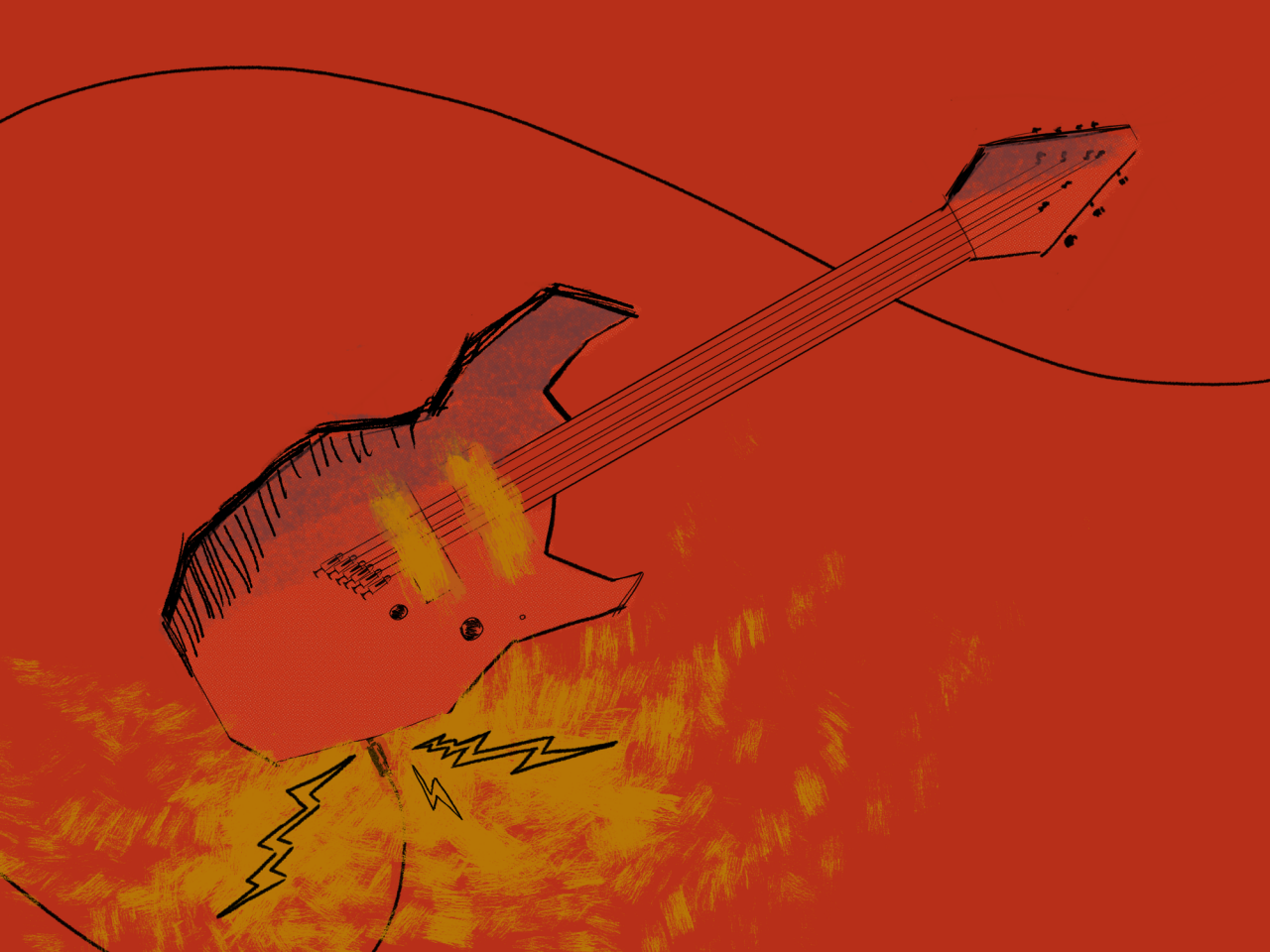Imagine this: it is just after midnight, there is a problem set due in eight hours that you have not started yet and no study music seems to be working. Lyrics are distracting, but most instrumental music just does not have the right tempo, or it all starts to sound the same. Orchestral music, movie soundtracks and lo-fi hip hop were all meant as background music, but they get boring after a while. What you need is a driving beat and a grooving guitar hook to keep on task.
Enter instrumental metal, the perfect study soundtrack which manages to keep things loud, fast and interesting without the distraction of vocals.
Instrumental metal and post-hardcore are exactly what they sound like: they feature loud and highly technical guitar work with a focus on complicated riffs and a driving beat from the bass and drums. The genre operates at a faster tempo than most instrumental “study music,” and the lack of vocals allows the musical talents of the metal guitar players to truly shine.
Most instrumental metal tracks fall into one of two categories. First, there is progressive metal, a broad genre closely related to the vaguely defined post-hardcore. Broadly, it encompasses all metal with experimental elements, such as uncommon time signatures, syncopation and unusual chord progressions. Within progressive metal is a sub-genre known as “djent,” named for the signature guitar sound: high gain, low pitch, distorted and palm-muted. The genre was pioneered by Meshuggah and Periphery, and bands within are noted for their use of guitars with more than six strings and for the technical prowess of their performers.
One of the seminal instrumental djent bands of the modern era is Animals as Leaders, a three-piece group that sounds little like its parent genre. Animals as Leaders often takes a lighter approach to their riffs than those bands, pulling from jazz and electronica influences, among others. The other common name in the scene would be Polyphia, a mostly instrumental band based in Dallas, Texas. Personally, they are my absolute favorite, and I have no shame in admitting that I would go to any extent to see them if they are ever in town. Like Animals as Leaders, they practice frequent genre experimentation. Although they have gained popularity by touring with such major acts as Periphery, Between the Buried and Me and August Burns Red, they cater to a smaller scene than those progressive metal giants.
For a solid example of “standard” instrumental djent, one has to look no further than Their Dogs Were Astronauts, an Austrian duo formed by brothers Denis and Leonard Roth in 2014. Both brothers play guitar and utilize backing tracks for other instruments when in concert. The sound is heavier than acts like Animals as Leaders or Polyphia, with a tremendous focus on the brothers’ guitar skills, and songs like “Low Life” would feel right at home in the soundtrack to a sci-fi action scene.
In the past, instrumental metal or heavy metal in general has not been taken seriously and is seen as lacking academic credibility when compared with other genres such as jazz and classical music, but that is just a cultural construct. I would even say that instrumental metal enables greater “riffiness” in metal. Without vocals to keep bringing the song back to repetition, riffs could have greater leeway and repetition would exist not out of standard song form but to emphasize parts of the song that need repeating for the sake of atmosphere.
For those who want a choice between listening, there are the Dance Gavin Dance instrumental albums. Beginning this year, the post-hardcore band has begun releasing their old albums sans vocals, beginning with the most recent release, “Artificial Selection,” and working backward, putting out a new–old album every month. Because vocal lines were originally present, some selections sound empty, like “Count Bassy,” while others, like “Chucky vs. the Giant Tortoise,” on the album “Mothership,” allow the aggressively talented instrumentalists to shine.
Instrumental progressive metal and djent have gotten short shrift, mostly from metal fans who prefer vocal lines, but bands like Animals as Leaders, Polyphia and Their Dogs Were Astronauts have something to offer for everyone. For band members, particularly guitarists, it gives them a chance to show off their technical chops in extended form, outside a solo and not hidden behind screams and growls. For the burgeoning guitarist, an interesting riff gives them something fun and challenging to practice.
And for the college student, like me, these bands walk the line of being interesting to keep people awake and engaged in their essays and problem sets without distracting them into a sing-along.









Rand • Oct 7, 2020 at 10:37 pm
Nailed it, and touched on everything I would have! Great piece, I enjoyed it very much.